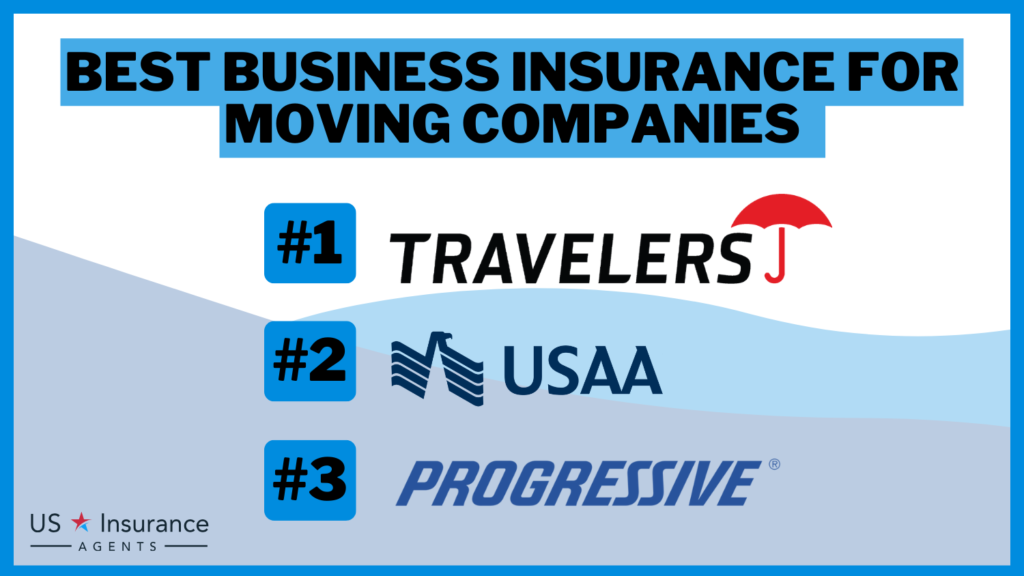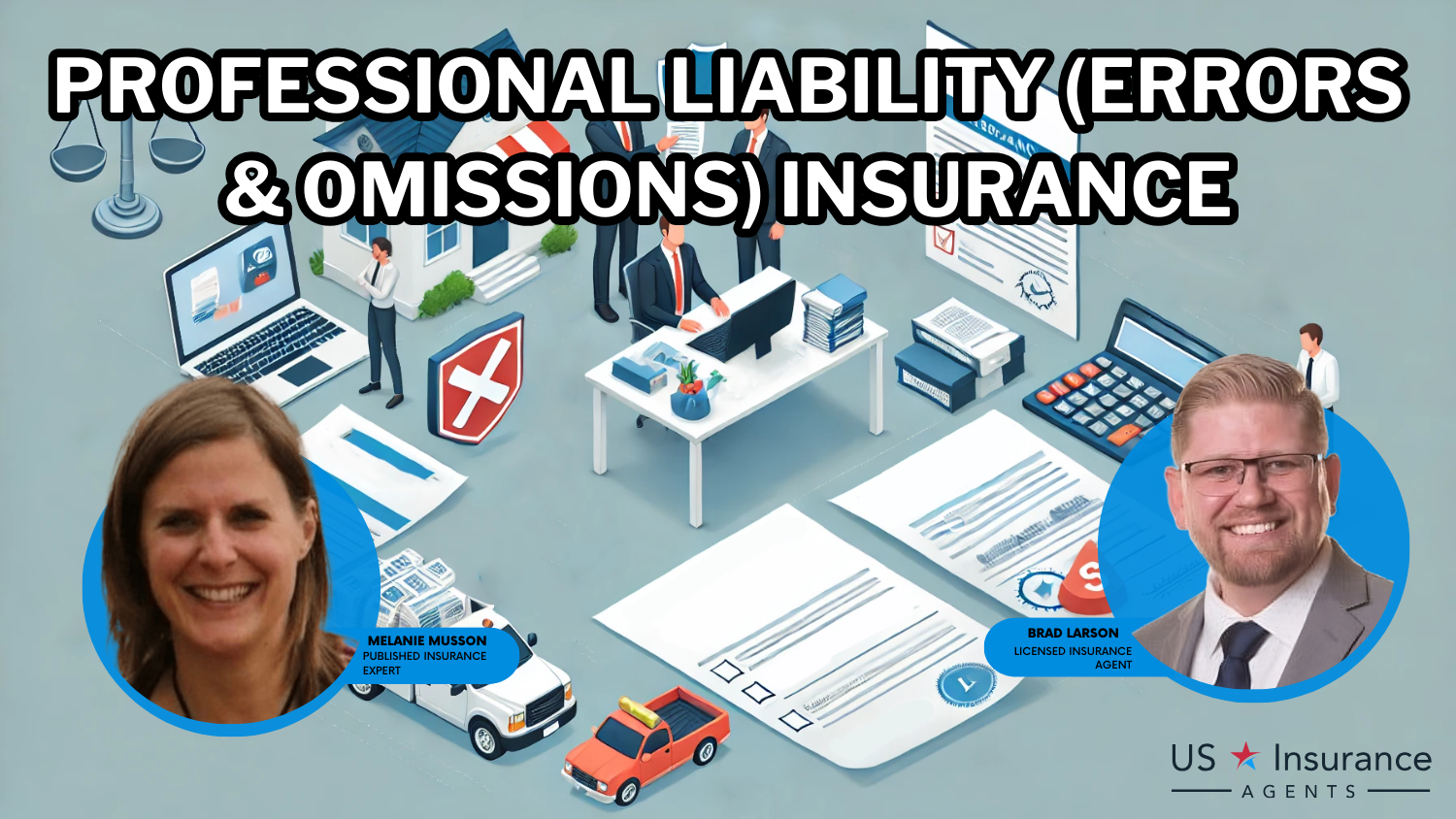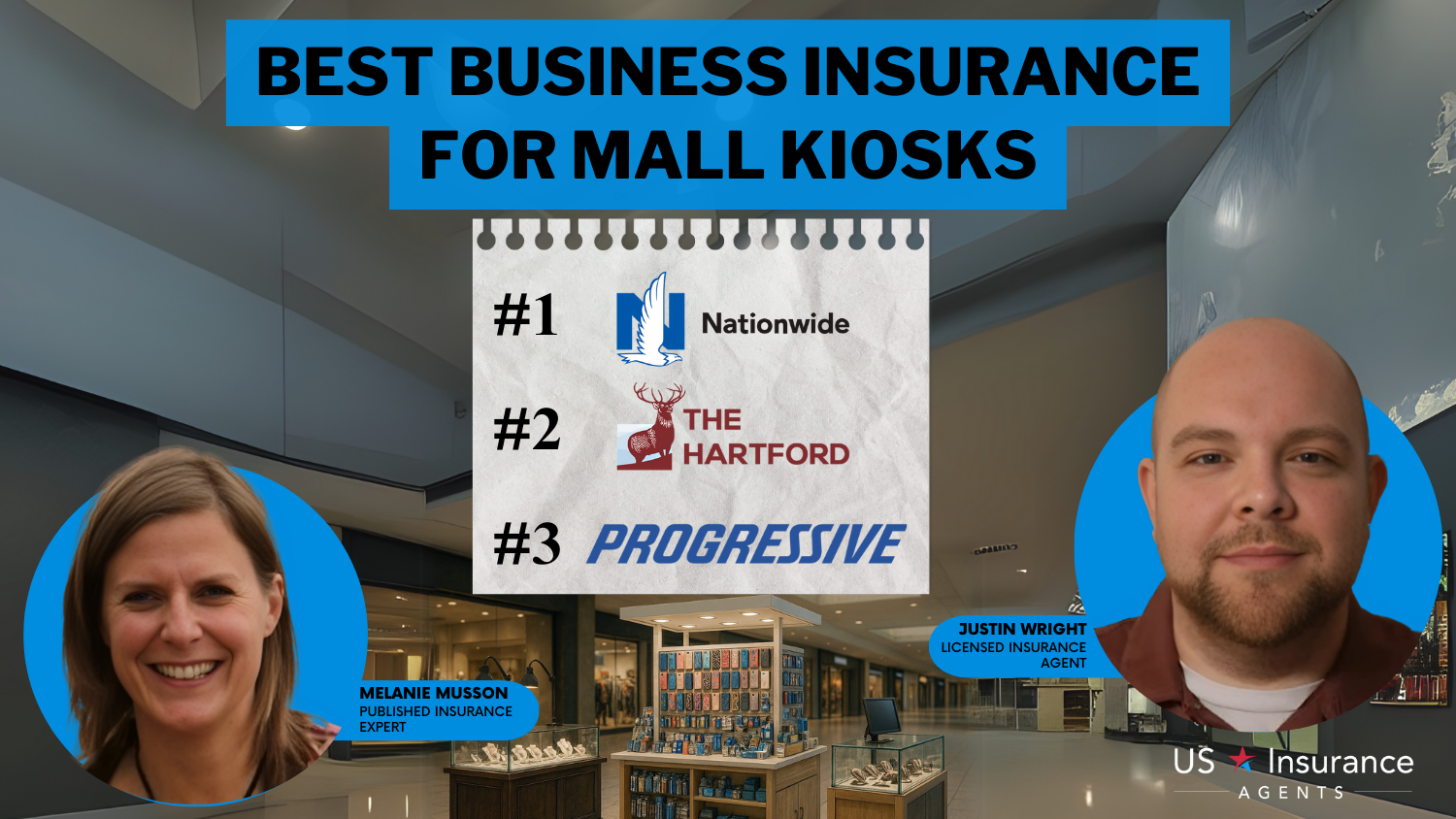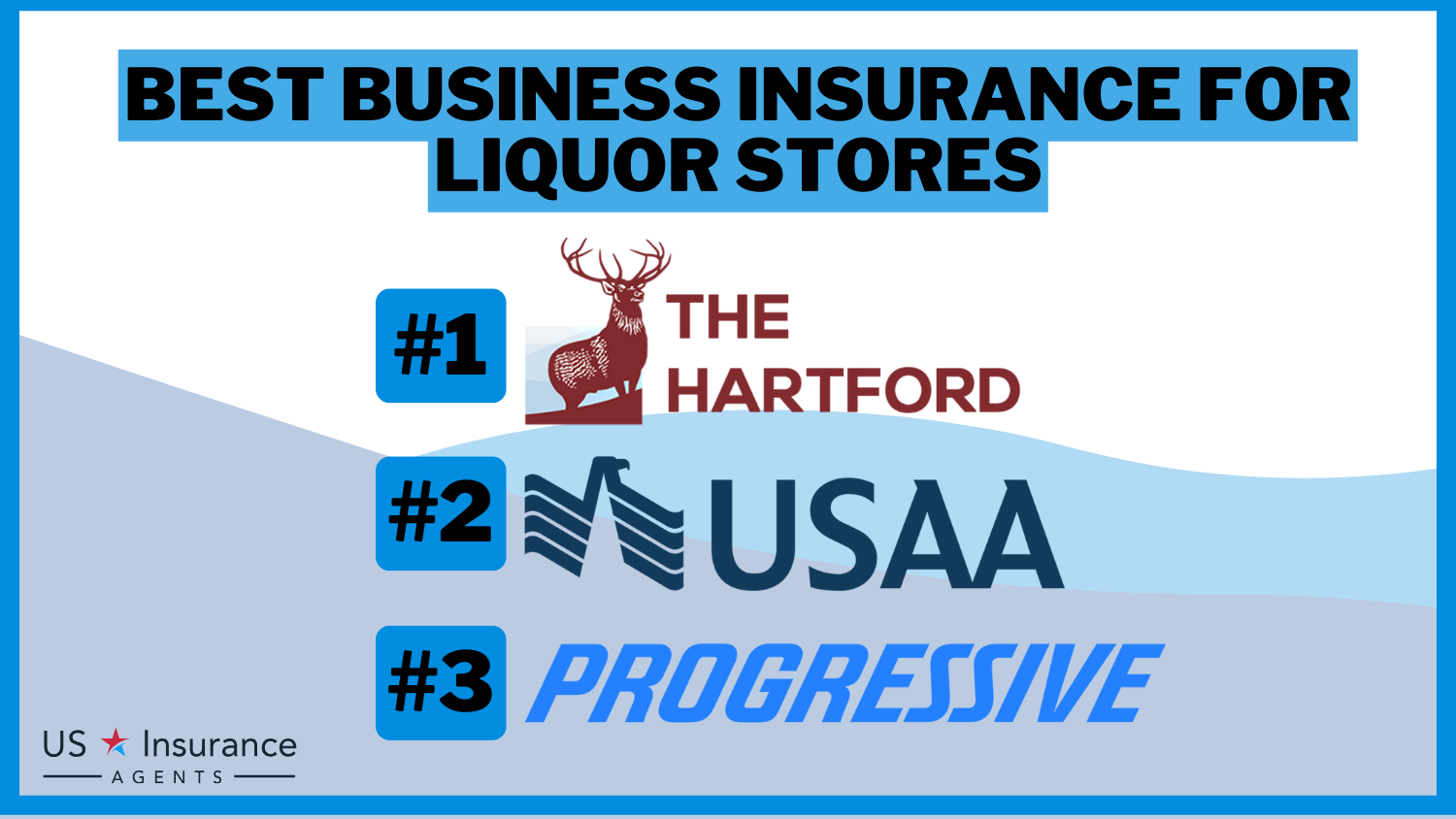Certificate of Insurance: Insurance Terms Explained (2026)
Discover the significance of a certificate of insurance and its role in safeguarding your business. Learn about the essential aspects, advantages, and legal requirements of having a COI. Gain valuable insights into why this document is crucial for mitigating risks and ensuring peace of mind in your professional endeavors.
Read more Secured with SHA-256 Encryption






Table of Contents
Table of Contents


Insurance and Finance Writer
Dorothea Hudson has been professionally writing in many spheres since 2013. She has written on entertainment, insurance, finance, travel, technology, AI, renewable energy, crypto, fundraising, and real estate for many websites. Her work has been published for British retailer Marks and Spencer, Kroger Magazine, the Vision Group, and more. Her passions include writing, music, running, travel, te...
Dorothea Hudson


Sr. Director of Content
Sara Routhier, Senior Director of Content, has professional experience as an educator, SEO specialist, and content marketer. She has over 10 years of experience in the insurance industry. As a researcher, data nerd, writer, and editor, she strives to curate educational, enlightening articles that provide you with the must-know facts and best-kept secrets within the overwhelming world of insurance....
Sara Routhier


Licensed Insurance Agent
Brad Larson has been in the insurance industry for over 16 years. He specializes in helping clients navigate the claims process, with a particular emphasis on coverage analysis. He received his bachelor’s degree from the University of Utah in Political Science. He also holds an Associate in Claims (AIC) and Associate in General Insurance (AINS) designations, as well as a Utah Property and Casual...
Brad Larson
Updated January 2025
Welcome to our comprehensive guide on “What is a certificate of insurance?” In this article, we delve into the importance and purpose of a certificate of insurance, providing valuable insights into its definition, key components, and legal requirements.

We explore how a certificate of insurance serves as proof of coverage, protects your business from potential liabilities, and ensures compliance with contractual obligations.
Additionally, we discuss the process of obtaining a certificate of insurance and highlight the different types of coverage it can encompass. To secure the best insurance rates for your business, enter your zip code now and compare quotes from top-rated insurance providers. Safeguard your business with the right coverage today!
- Certificate of insurance is often referred to as a COI
- If you provide a good or service for another person or company, you may be asked for a COI
- COIs are a one-page summary of insurance coverage
What is a certificate of insurance?
A certificate of insurance, or a COI, verifies an insurance policy. It is a document from an insurance company or broker that summarizes your company’s insurance policy. A COI is a one-page sheet stating your policy’s standard details and contact information.
Think of a certificate of insurance as similar to your health or car insurance card.
Its sole purpose is to provide proof that your policy exists, how much you’re covered for, and your term dates. Keep reading to learn more about how to request a certificate of insurance from a vendor.
Free Business Insurance Comparison
Compare Quotes From Top Companies and Save
Secured with SHA-256 Encryption
Basics of Certificates of Insurance
When a company asks you to provide proof of insurance, you are providing a good or service that involves a high risk of liability and/or significant losses.
A certificate of insurance, as we learned, is just a document. But, it’s crucial in construction and vendor contracts because it reduces the risk to your company. Its only purpose is to provide security for a business and its clients.
For example, Company A requests a COI from Company B to perform construction work. Company A is asking to be put on that policy for the gestation of the project/contract period, meaning Company A will be reflected as an additional insured. This is done so if Company A gets sued or there is an accident because of work done under contract, Company B’s insurance will cover the damage.
An additional insured refers to someone other than the policyholder who is covered by the insurance policy.
You must do your due diligence when conducting your background check into your contractor or vendor agreement. Business insurance policies are long documents that speak to the specifics of the policyholder. It may be challenging to capture all the stipulations of a policy in one page.
These documents are routine and provide the security to outsource a good or service on contract.
Whether your business is hired as a contractor or a vendor, it will be beneficial to keep track of these. You don’t want to get caught in the dark and forced into costly litigation.
How do you get a certificate of insurance?
Usually, a COI is provided upon purchase of business liability insurance. If you do not receive a certificate of insurance, you need to ask your insurance provider/broker for it. Your policy issuer is the only entity with this document. You may be able to get a certificate of insurance online, depending on your provider.
We will go over how to get a certificate of insurance, but first, let’s look at the two types of certificates. In the next section, we break down liability and worker’s comp certificates of insurance.
Types of Certificates of Insurance
So, now we understand how a COI is different from your insurance policy. But, which one will you require for your business? There are several different types of commercial insurance scenarios that may require a COI.
Certificate of Liability Insurance
COIs are often required for liability coverage, which isn’t an accident. Whether you’re asked to provide a COI or require insurance certificates for subcontractors, it indicates that there is the added risk of a third party around your business.
Another scenario of when you will need a certificate of insurance is selling street food under city ordinances. As a food truck providing food service in your hometown, you may be required to provide a COI because you pose a threat to public health.
Read more: Best Business Insurance for Food Trucks
Certificate of Worker’s Compensation Insurance
Any business with employees is required to have worker’s compensation insurance in just about every state. In some places, subcontractors may also be considered employees of your business, and therefore entitled to worker’s compensation.
The third type of COI covers auto insurance, but it is not common.
A COI is a safety net for small business owners and contractors against liability in workplace accidents or work-related injuries. These documents are important because they prove your insurance status and shift the liability to the company that causes any damage or injury during the contract.
A Certificate of Insurance Doesn’t Guarantee Coverage
A certificate of insurance represents the policy at the point of purchase, not the actual policy.
According to the International Risk Management Institute, a COI verification doesn’t carry any weight on the policy. But what does that mean? The IRMI says:
“A Certificate of Insurance is NOT an insurance policy and does not serve to provide, endorse, amend, extend, or alter the terms of an insurance policy. Only an endorsement, rider, or amendment to the policy can effect changes in coverage. Reference to a contract between the client and the third party on a certificate does not provide coverage.”
There may be liability insurance situations that are more complex than a one-page COI to reflect. Business insurance policies are complex documents that can be tens of pages long. There could be unforeseen loopholes or misrepresented information.
It is illegal for a company to fabricate or mislead insurance information reflected on a COI. However, mistakes happen.
You may also run into trouble if a business requires specific insurance terms or a specific format that the certificate of insurance didn’t meet. This is why it is crucial to speak with insurance experts and make sure you are working with licensed professionals.
How long should I keep a COI?
Unfortunately, there may be circumstances when your project is out of line with a contractor’s insurance policy. While a COI is intended to provide security against a lawsuit or damages, that’s not always the case.
Keeping track of your certificates of insurance when you’re the contractee or the contractor is based on personal preference. It is recommended that you keep records after a project has finished if an issue arises later down the line.
Proof of insurance protects your business while ensuring that any victims receive appropriate restitution. Even in a labor dispute, a certificate of insurance can help reflect the status of employees. Also, keeping a COI may help you receive or be denied back pay in these disputes.
Some companies and programs offer your business a hub to make COI tracking easier.
Free Business Insurance Comparison
Compare Quotes From Top Companies and Save
Secured with SHA-256 Encryption
The Bottom Line: What is a certificate of insurance?
When your certificate of insurance is being prepared, you want to make sure your information is clear and correct. This document may be small, but it holds a lot of power in keeping you and your business safe.
A COI should not be confused with the policy itself or a single type of insurance. If your business doesn’t have coverage, that’s where you need to start.
If you’re looking to get your business covered, use our free tool. Enter your ZIP code to speak with agents in your area.

Frequently Asked Questions
What is a certificate of insurance?
A certificate of insurance is a document that provides evidence of insurance coverage to a third party. It summarizes the key terms and conditions of an insurance policy and is often requested by parties such as contractors, vendors, or landlords to verify that a business or individual has insurance coverage in place.
Who issues a certificate of insurance?
A certificate of insurance is issued by the insurance company or the insurance agent/broker on behalf of the insured party.
What information is included in a certificate of insurance?
A certificate of insurance typically includes the name of the insurance company, the policy number, the policy effective and expiration dates, the types of coverage, and the limits of coverage. It may also include the name of the insured party, the name of the certificate holder (the party requesting the certificate), and any special requirements or endorsements.
Why is a certificate of insurance needed?
A certificate of insurance is often requested by a third party to verify that a business or individual has insurance coverage in place. For example, a contractor may be required to provide a certificate of insurance to a client to show that they have liability insurance or workers’ compensation insurance.
How can I obtain a certificate of insurance?
If you are the policyholder, you can request a certificate of insurance from your insurance company or your insurance agent/broker. They will typically provide the certificate free of charge. If you are a third party requesting a certificate, you will need to request it from the insured party.
Get a FREE Quote in Minutes
Insurance rates change constantly — we help you stay ahead by making it easy to compare top options and save.






